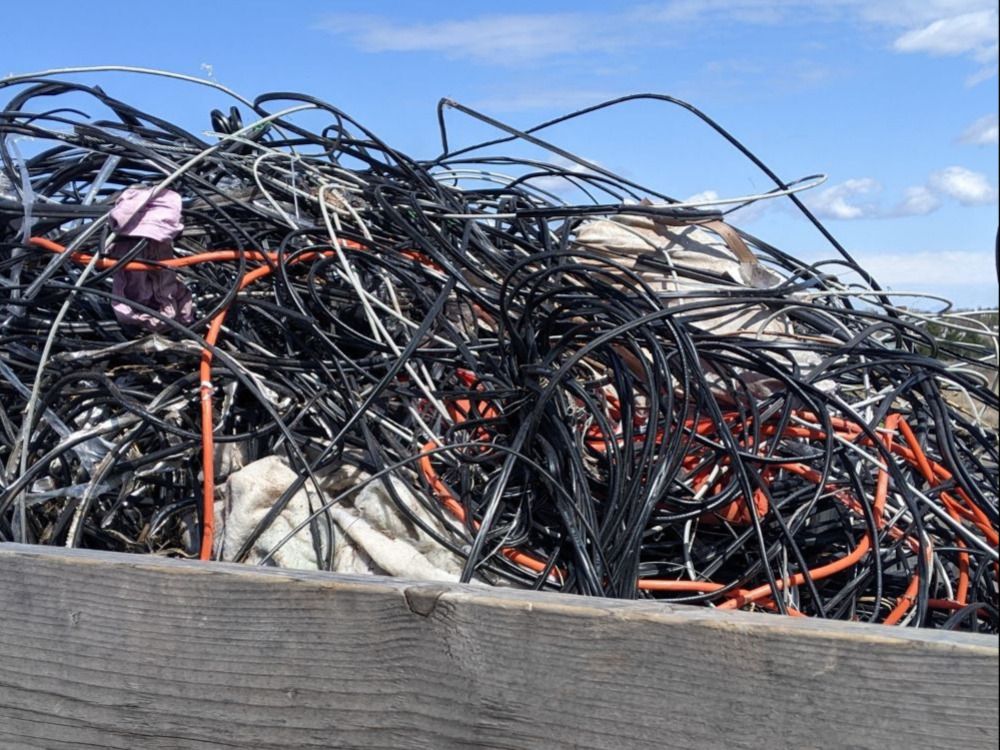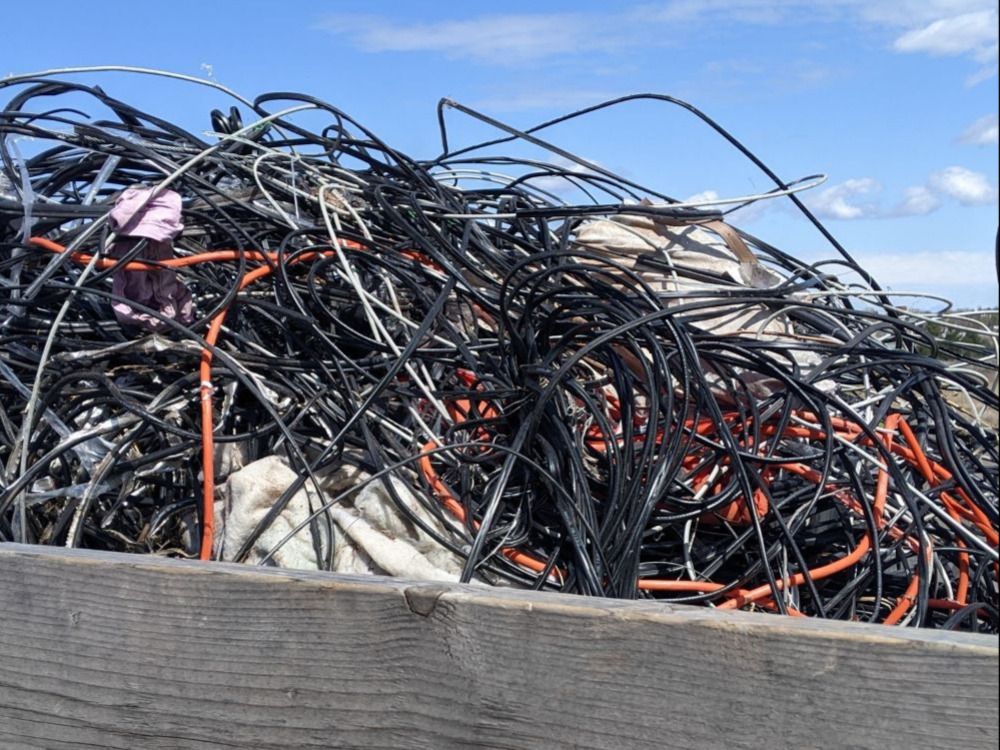
This week, Ontario Provincial Police arrested four men and charged them with stealing copper wire from 33 decommissioned hydro police that were cut down in a rural region in northern Ontario.
, with an estimated value of $100,000, was taken in May from Coleman Township, some 200 kilometres northeast of Sudbury.
The news comes at the same time that U.S. President Donald Trump is announcing a possible
on Canadian copper.
“Today we are doing copper,” he told reporters during a cabinet meeting on Tuesday. “I believe the tariff on copper, we are going to make it 50 per cent.” U.S. Commerce Secretary Howard Lutnick, who was in the meeting, later confirmed the amount.
What does the new tariff mean?
It’s a major hit. According to Natural Resources Canada, Canada’s exports of copper and copper-based products were valued at $9.3 billion in 2023, with the United States accounting for more than half the total export value that year.
Already the
is reporting that the tariffs have driven copper prices in the U.S. to an all-time high, with copper futures jumping more than 10 per cent to $5.682 a pound overnight. Conversely, it noted that prices elsewhere in the world fell amid fears that high U.S. prices could reduce demand globally.
Is copper theft tied to the new tariffs?
Yes and no. Anything that increases the price of copper will mean more theft of the material, but it’s long been a problem in Canada and elsewhere.
Back in 2014 the industry group
released a paper, “Copper Theft from Canada’s Electricity Infrastructure: Dangerous, Expensive and a Threat to Reliability,” highlighting what was even then a $40-million-a-year problem.
How big a problem is it today?
Last year,
highlighted the cost of copper as a factor driving thefts, and also noted the peril faced by criminals: “In addition to the illegal aspect of copper theft, it can also be an extremely dangerous crime, as thieves may put themselves at great risk when stealing copper wires. Stealing live wires from hydro sites, telephone poles or underground wiring systems can result in serious injury, or even death.”
And just this month a
noted that copper theft is up 23 per cent year-over-year, with over 500 cases this year alone, and more than 2,270 since 2022. It noted that Ontario leads the country with 63 per cent of copper thefts, but that New Brunswick and Quebec are also hot spots.
Where do thieves steal copper?
Electrical transmission wires, such as the recent case in Coleman Township, are one source. Depots are another: Caliber related an October 2024 incident in which thieves broke into a business in Cambridge, Ont., and made off with copper wire valued at approximately $50,000.
In 2006, the Canadian Press reported a crime in which criminals climbed to the roofs of four Quebec City churches, carting away several hundreds dollars worth of copper from the roofs, gutters and wiring, and leaving behind tens of thousands of dollars in damages to the buildings.
And just this week a man in Brantford, Ont., was
in jail for dismantling the air conditioning units of two local businesses to get at the copper inside.
How is stolen copper sold?
Scrap metal dealers are the main source for selling copper, which is difficult to trace and thus hard to detect as stolen.
In January,
a 10-year-old law called the Scrap Metal Dealers and Recyclers Identification Act that required dealers to record home addresses of sellers, and for sellers to show the dealer government-issued ID.
“Further, these individuals must provide detailed information about the vehicle used to transport the metal to the dealer, the make, model, license plate, and colour,” the law stated.
Justice Heather Lamoureux concluded the act amounted to unreasonable search and seizure by the state, and violated Section 8 of the Canadian Charter of Rights and Freedoms.
Other jurisdictions have set up similar laws, however. Last year, Brantford city council
that scrap metal dealers receiving “restricted scrap metal” (a list that includes copper) must have police permission to do so, and have to gather information about the transaction, and not pay out in cash.
Our website is the place for the latest breaking news, exclusive scoops, longreads and provocative commentary. Please bookmark nationalpost.com and sign up for our daily newsletter, Posted, here.
